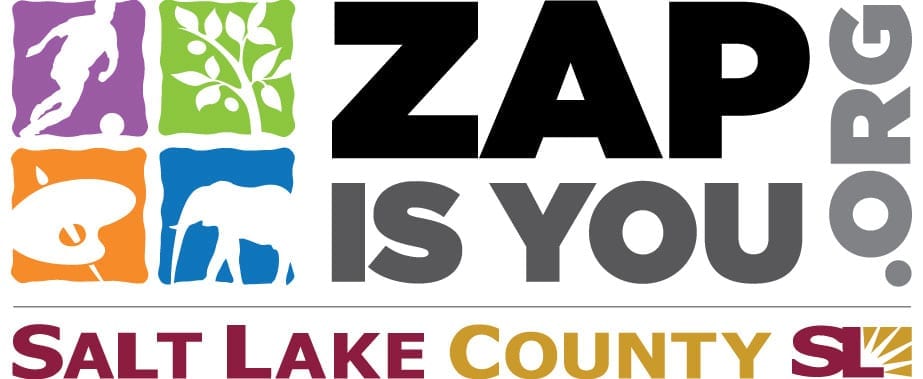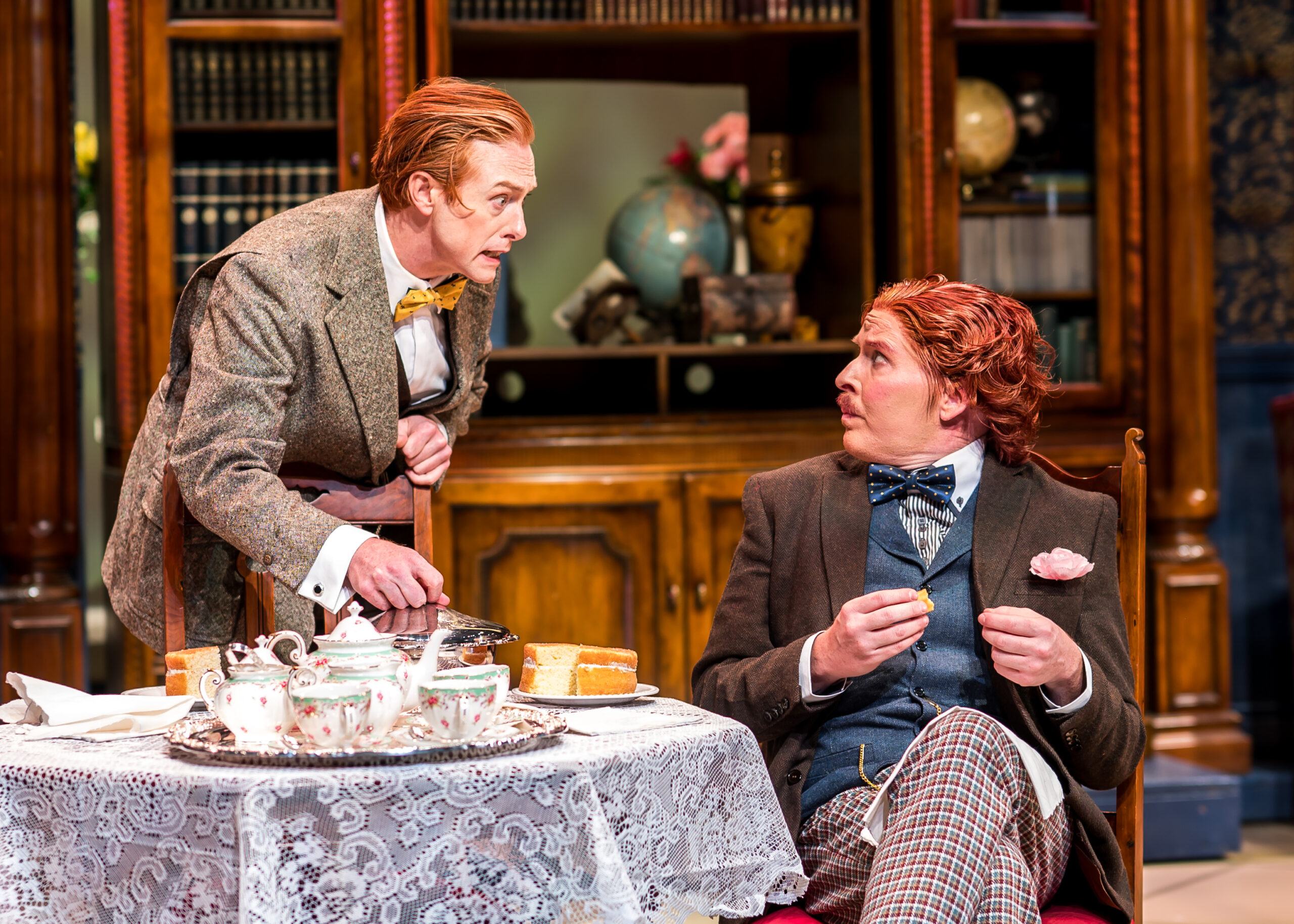SOUTH SALT LAKE — Like Pirates of Penzance, The Importance of Being Earnest is a Victorian era comedy that has passed the test of time. Written by Irish playwright Oscar Wilde and premiered in 1895 London, the farcical comedy is jammed with witty repartee and ridiculous language that continue to resonate with audiences. In the hands of Parker Theatre, the currency and vibrancy of this classic comedy shone brilliantly, as it seemed that practically every line and action at Saturday night’s performance was rewarded with laughter among the audience.
The absurd story involves two friends, Jack and Algernon, who use false identities to pursue romantic interests. Eventually, their piles of lies collapse, and they discover that being honest—err, earnest—sometimes has its advantages.
Jonathan McBride was outstanding as Algernon, a conniving dandy with a gargantuan taste for cucumber sandwiches. McBride displayed an impressive command for the language and nailed each line’s humor with excellent dialect work. Maybe it was the long hair, but he reminded me a bit of Gene Wilder, a master of comedy in his own right.
Also standing out among the cast was Kristi Curtis as Jack’s love interest Gwendolen. Curtis was delightful and funny as a woman with absolute confidence in her opinions—no matter how ridiculous. Chief among her absurd certainties was that only men named Ernest are worth marrying, which provides one of the play’s dramatic narratives.
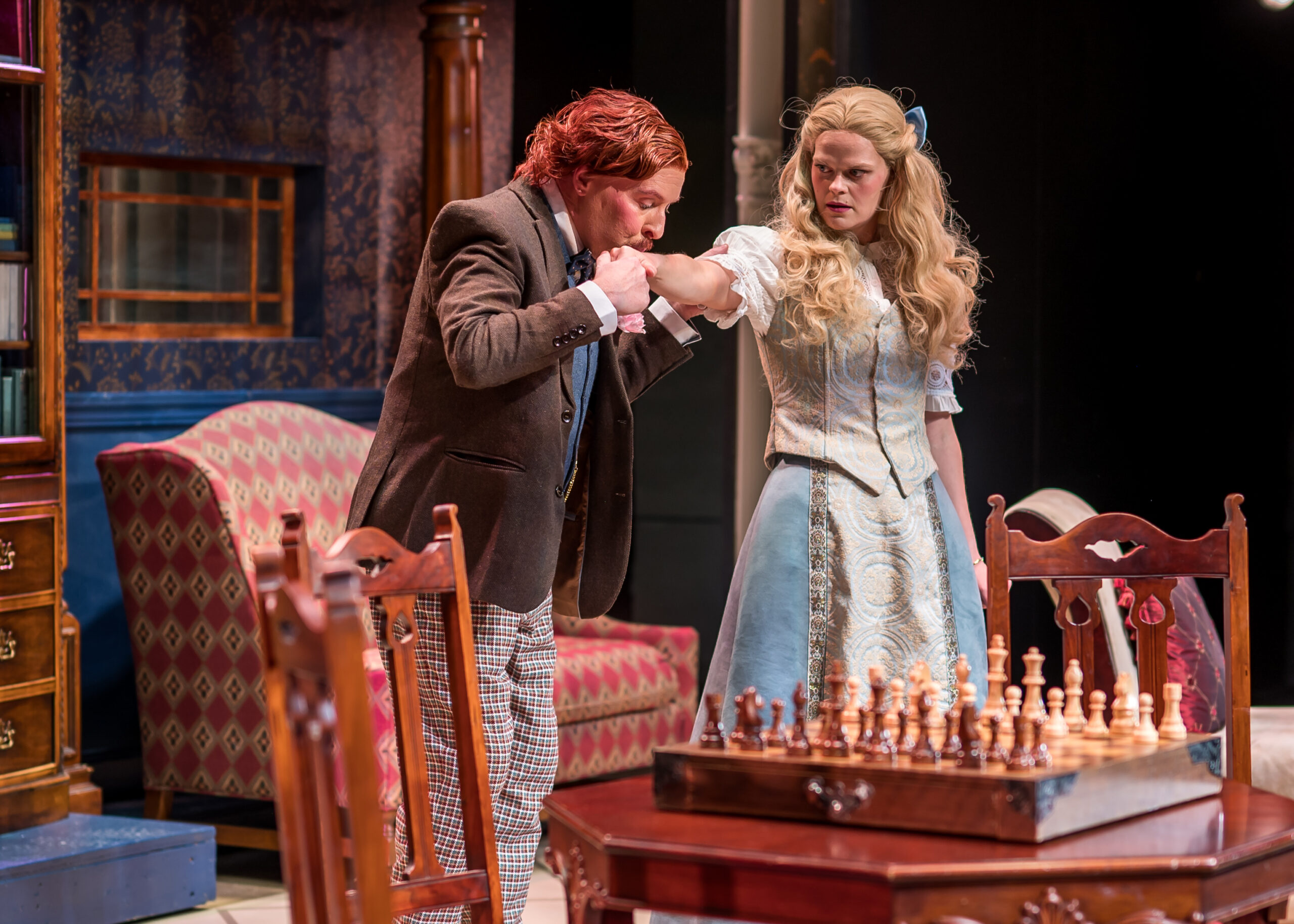
Chris Last as Jack was a strong partner with McBride, and used large expressions and body language in addition to showing an excellent command of the play’s humor and language. And Linda Jean Stephenson was hilarious as Lady Bracknell, particularly her early speech extolling the virtues of ignorance. Without a physical program to tip me off, I was surprised to learn after the show that the old Maid was in fact not played by an ancient woman, but by director Mary Parker Williams. Kudos to Williams for the convincing transformation.
Brett Myers’ success as dialogue coach was evident across the cast. From McBride’s confident, convincing vocal performance (“Algie nailing the accent”, I wrote in my notes) to Stephenson’s Maggie Smith-like pronunciation of the word “questions.” Williams smartly let the play’s iconic dialogue come forward, with some physical humor also added to the mix. One smart staging choice was placing Gwendolen and Cecily at a chess board during an argument, and having the two characters progress pieces against each other as they made their points.
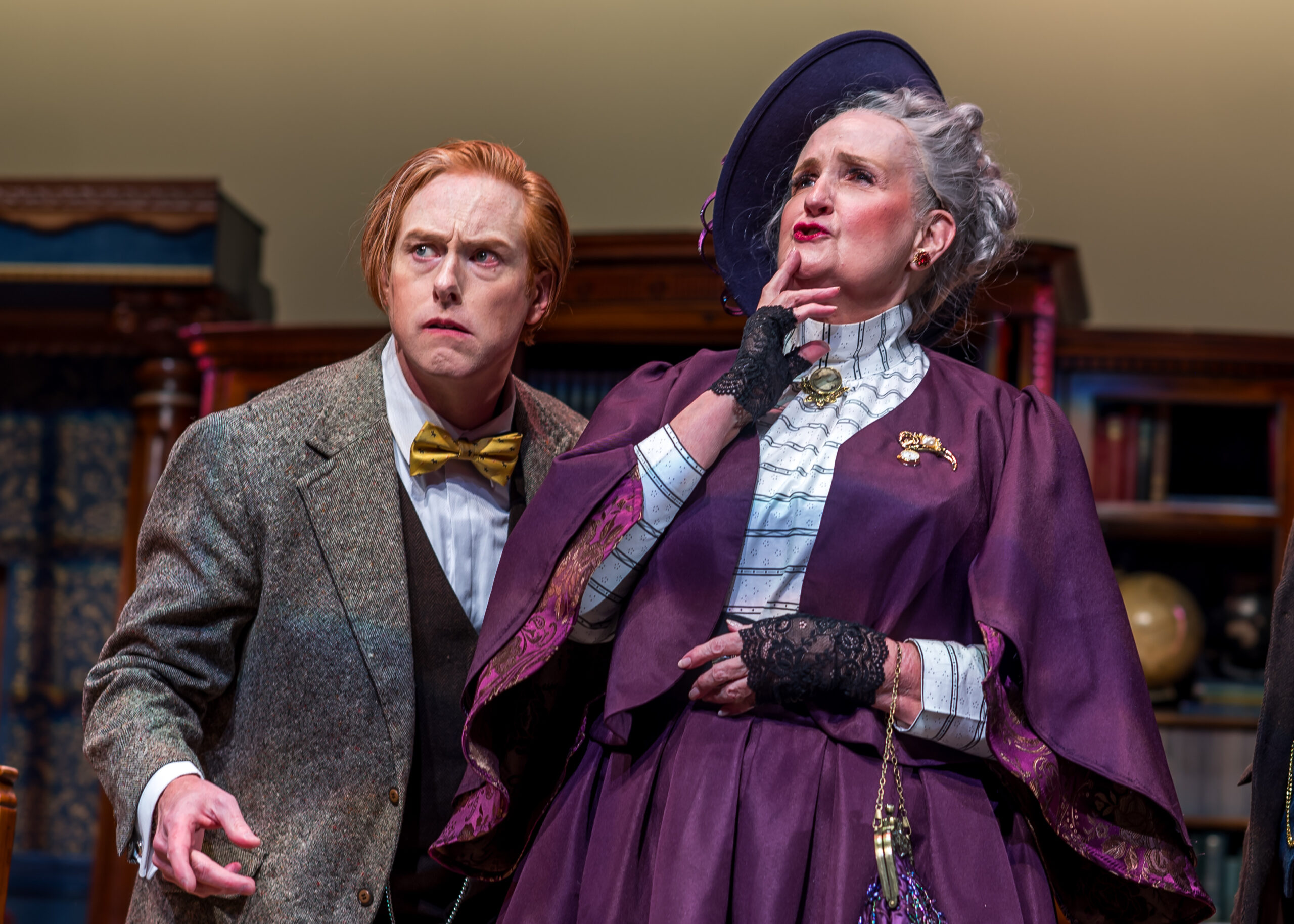
Production design was basically flawless. Costume designer Rebecca Fenton decked Algernon out to the point of garishness, with a purple vest, plaid trousers, and a mustard yellow tie that draped all over his bosom. Although his red-orange wig felt a little artificial, Ronald McDonald-esque, Gwendolyn’s “Gibson Girl” wig with curls around her face was more effective. Plus, her outfit, with sage green bodice and skirt, was captivating. The costume was accessorized with a time-appropriate short hat, broach and parasol—used to whack those around her. I also appreciated the placement of Lady Bracknell’s hat toward the upstage side, allowing the audience to see her face.
The production had three attractive sets designed by James B. Parker (who also did the lighting design). Most interesting from a storytelling perspective were the windows on the upstage wall in Act III which allowed the audience to see which characters were coming and going, and provided additional characterization. For example, after Gwendolen and Cecily (Kristin Hafen) become bosom buddies, they depart from the men, affronted by their lies and behavior, and the windows allowed the audience to see more of their huffy departure.
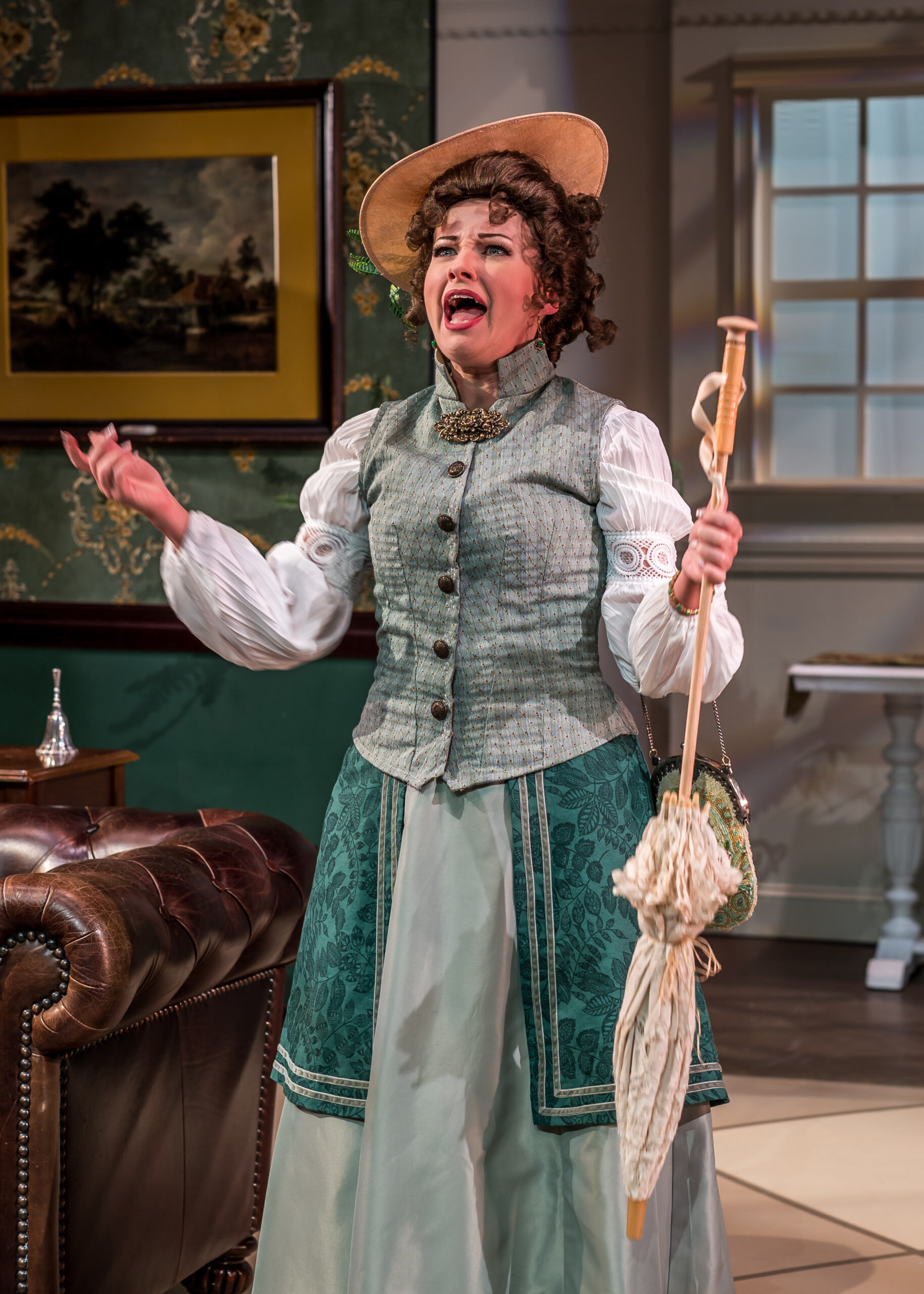
There were a dozen or so flubbed lines among the cast, although only one (in Act III) where the actor didn’t correct themself in time to save it. With that exception, the small missteps felt understandable given the abundant fast dialogue, possible opening night jitters, and unusually high amount of distractions in the audience.
The Importance of Being Earnest is one of the funniest plays ever written. Anyone who enjoys quick-firing wit, British humor or wordplay will find a lot of love in Parker Theatre’s production—from its fabulous costumes to excellent performances. Allow me to indulge in a few lines that made me chuckle:
- “Men should be more careful; this very celibacy leads weaker vessels astray.”
- “Rise, sir, from this semi-recumbent posture.”
- “The suspense is terrible. I hope it will last.” (Which the aforementioned Wilder resurrected as Willy Wonka.)
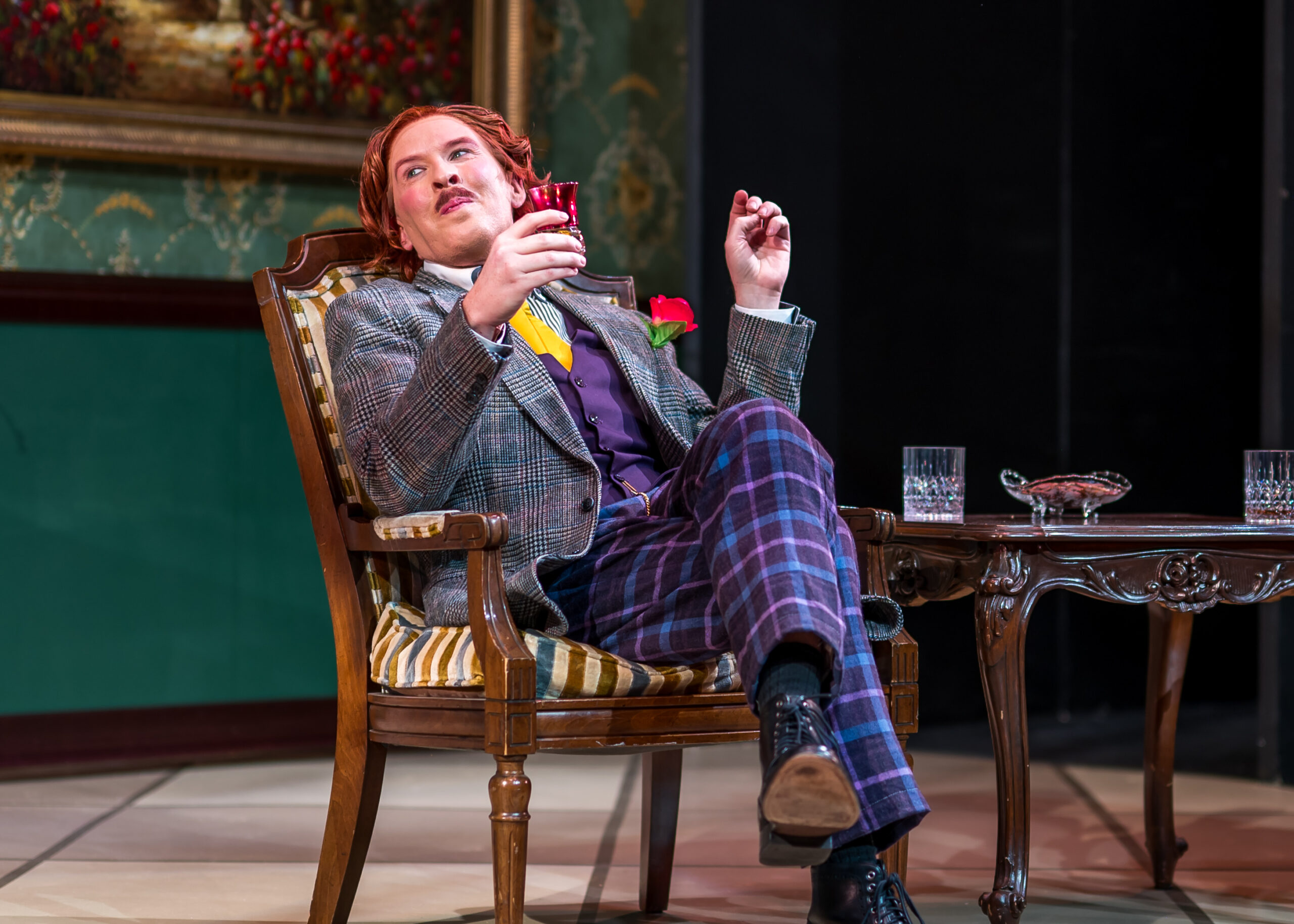
For all the play’s absurdities, it also demonstrates that truth can be found by the devoted pursuit of practically anything (in this case, humor). Consider this gem from the script: “The very essence of romance is uncertainty.” That’s not just deeply funny; it’s just plain deep. When you run as far from the truth as possible (as Wilde did), eventually you circle back around to it.
[box]The Importance of Being Earnest plays May 24 – June 22, Fridays at 7:30 PM and Saturdays at 3:30 PM and 7:30 PM, at the Parker Theatre (3605 South State Street, South Salt Lake). Tickets are $27 for adults, $18 for children. For more information, visit parkertheatre.org.[/box]
